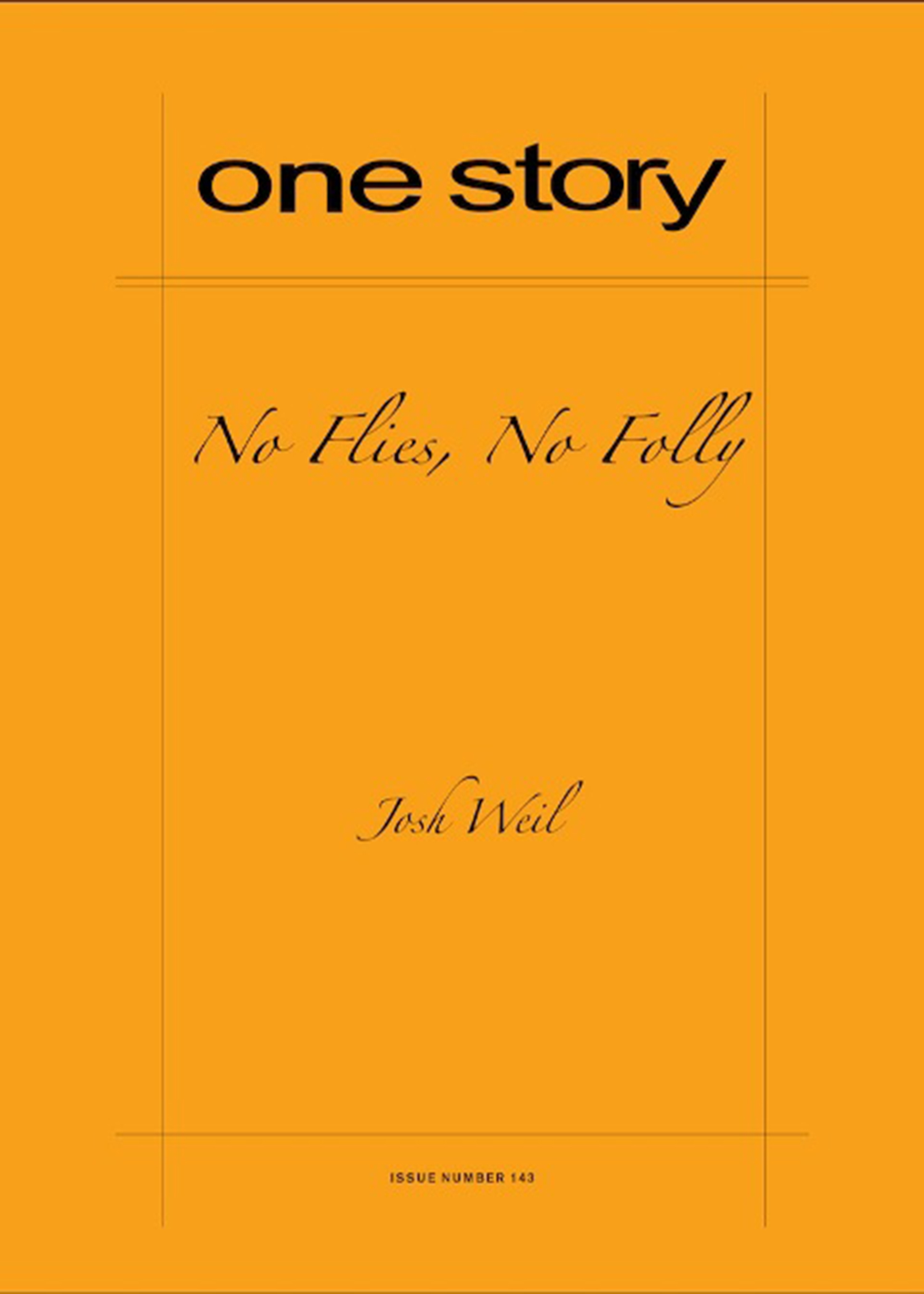
No Flies, No Folly
$2.50
30 in stock
Excerpt
One by one the windows come alight. From up the hill, I watch: the Hartzlers’ old stone house so dark, so still, it might be the new-turned soil of a garden bed—huge, square, black—and in it the orange lamplight blooming. Bloom, bloom, bloom. Mrs. Hartzler lighting the wicks. There: I can see her shape. It goes window to window, a bee drifting. Till it reaches the first floor, again, and goes straight to—where else?—the kitchen. My stomach moans. I suck in my gut, tug the rucksack’s belt more tight. On my shoulders I shrug the straps a little higher. Down I start toward the farm. I was not always a peddler. I was once, too, a lighter of lamps. Street lamps. In the city of Providence. I was once a seller of lemons in Baltimore. I was a greenhorn seeing from the deck of a ship for the first time the lights of New York. I was a beggar. I was a deserter. Once upon a time I absconded from the Army of the Tsar. Once upon a time, I was a soldier. A draftee. I was a Russian, a Jew. A brother. A son.
Josh Weil
Josh Weil is the author of The New Valley (Grove, 2009), a New York Times Editors’ Choice that won the Sue Kaufman Prize for First Fiction from The American Academy of Arts and Letters; a “5 Under 35” Award from the National Book Foundation; the GLCA New Writers Award; and was shortlisted for the Virginia Literary Award in Fiction. Weil’s short fiction has appeared or is forthcoming in Granta, Agni, Glimmer Train, Narrative, and American Short Fiction; he has written non-fiction for The New York Times, Granta Online, Oxford American and Poets & Writers. Since earning his MFA from Columbia University, he has received the Dana Award in Portfolio, and fellowships from the Gilman School, the MacDowell Colony, Bread Loaf and Sewanee Writers’ Conferences, the Writer’s Center, and the Fulbright Foundation. Currently writer-in-residence at the James Merrill House, this spring Weil will be the Distinguished Visiting Writer at Bowling Green State University.
Q&A by Hannah Tinti
- HT: Where did the idea for this story come from?
- JW: Titles are difficult, like wrestling a bear when armed with a pair of pantyhose. Not easy. You are trying to do too many things at once and nothing at all. The story was named “The Zoo” for awhile, and I liked this but as the story shifted beneath my feet and Thorgen and his puppets came more to the surface, I thought the notion of puppetry, of who controls who, of whether we are automata or free-willed individuals became the central hinge of the story. My next novel is about puppets so I’ve had puppets on the brain for some time. I am obsessed with them. How can something appear both lifeless and more human than we are at the same time?
- HT: What was the most challenging aspect of writing this story?
- JW:
- HT: Was it difficult to write in a different time period? And how did that affect Shimel’s voice?
- JW:
- HT: Why did you choose to bring these two cultures, Russian Jew, isolated Amish, together?
- JW:
- HT: Can you talk a little about the use of light in your story? What made you land on this as a device or symbol for the piece?
- JW:
- HT: What do you think is next for these characters? Will Esther return to her family?
- JW:
- HT: Can you tell us a little about the title?
- JW:
- HT: How long did it take you to complete this story?
- JW:
- HT: What are you working on now?
- JW:
- HT: What is the best bit of advice about writing you have ever received?
- JW:
